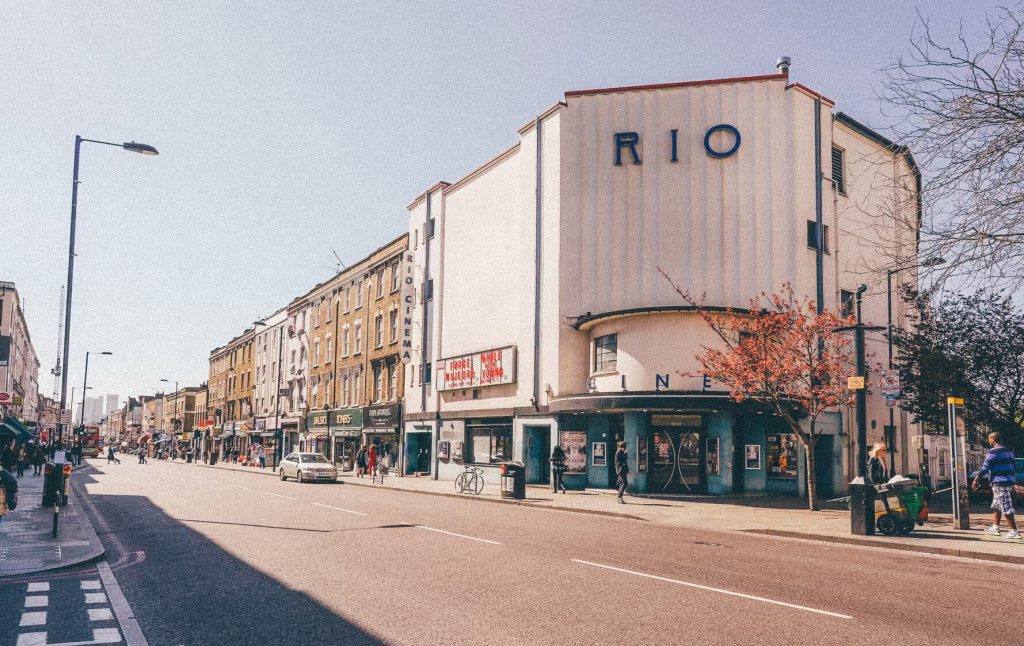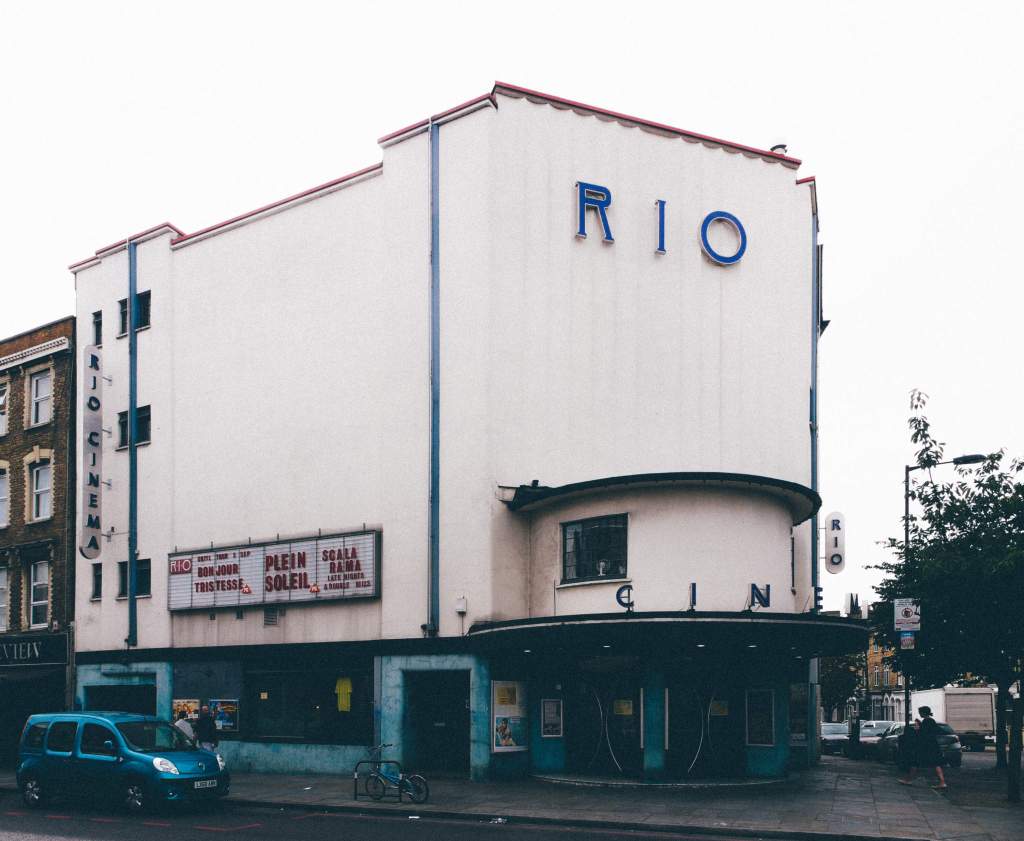
The Rio Cinema, situated on Kingsland High Street in Dalston, east London, is an independent Art Deco cinema that has been in operation for over 100 years. The cinema is listed as a Grade II building.

The building was initially an auctioneer’s shop, later transformed into the Kingsland Palace in 1909 by its owner, Clara Ludski. It became one of the five cinemas in Dalston and an instant success. Its popularity resulted in the acquisition of the adjacent properties and George Coles, the architect, was hired to create a new single-screen cinema. Construction began in 1913, and the Kingsland Empire opened in 1915.
The cinema was bought by London & Southern Cinemas Ltd in 1933 by Clara Ludski and later in 1936 by Capital & Provincial News Theatres, who became the Classic Cinema chain. The building was renovated in Art Deco style by architect FE Bromige in 1937 and reopened as the Classic Cinema Dalston, using the original cinema as its foundation. The auditorium’s ceiling and upper walls have been preserved and can only be accessed from the roof. This is a unique feature, as during the 1930s, many cinemas were transformed to accommodate sound, and no other cinema had two distinct auditoriums within one. According to English Heritage, it is an “extremely rare survival.” The exterior of the cinema has remained almost unchanged since the 1930s.

The Classic cinema suffered bomb blast damage during the Blitz in 1941 when a high explosive bomb fell across the street in Birkbeck Mews. In the early 1950s, the cinema underwent a makeover with simplified signage and neon. In 1958, it was renamed the Classic Cartoon Theatre. In 1960, it was transformed into the Classic Continental and began showing foreign language films. In 1971, it was rebranded as the Tatler Cinema Club and started screening adult films with live striptease burlesque acts on stage.
The cinema came under independent cooperative management in 1976. Since 1979, it has been operating as a not-for-profit registered charity. In 2012, thousands of people successfully petitioned Transport for London to rename the bus stop outside the building as ‘Rio Cinema.’

The Rio Cinema announced in August 2016 that they would be adding a second screen to their establishment in the basement area, with a scheduled opening for summer 2017. In 2017, the cinema launched a successful funding campaign, raising £125,000 to restore the Art Deco exterior and construct the second screen in the large basement. This second screen, with a seating capacity of 28, was opened in December 2017. Subsequently, in May 2019, the cinema opened a new bar, the Ludski Bar, located in the basement space next to the second screen. The bar was named in honor of Clara Ludski, the original owner of the cinema.

Check them out/Support them HERE

